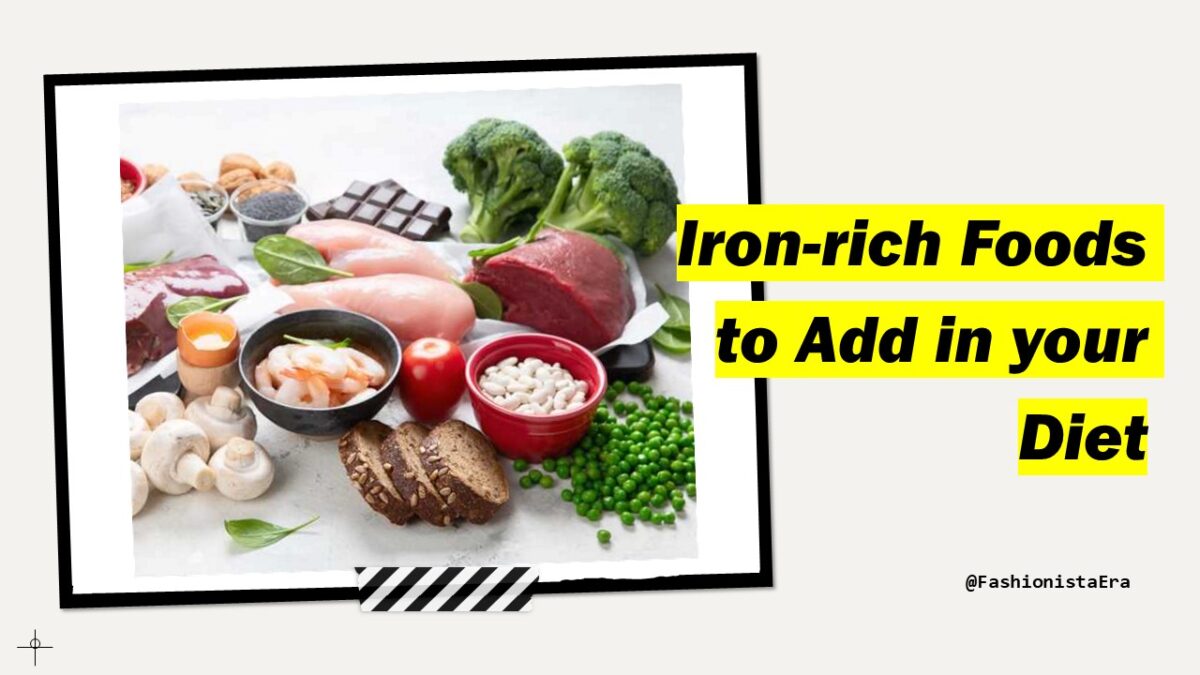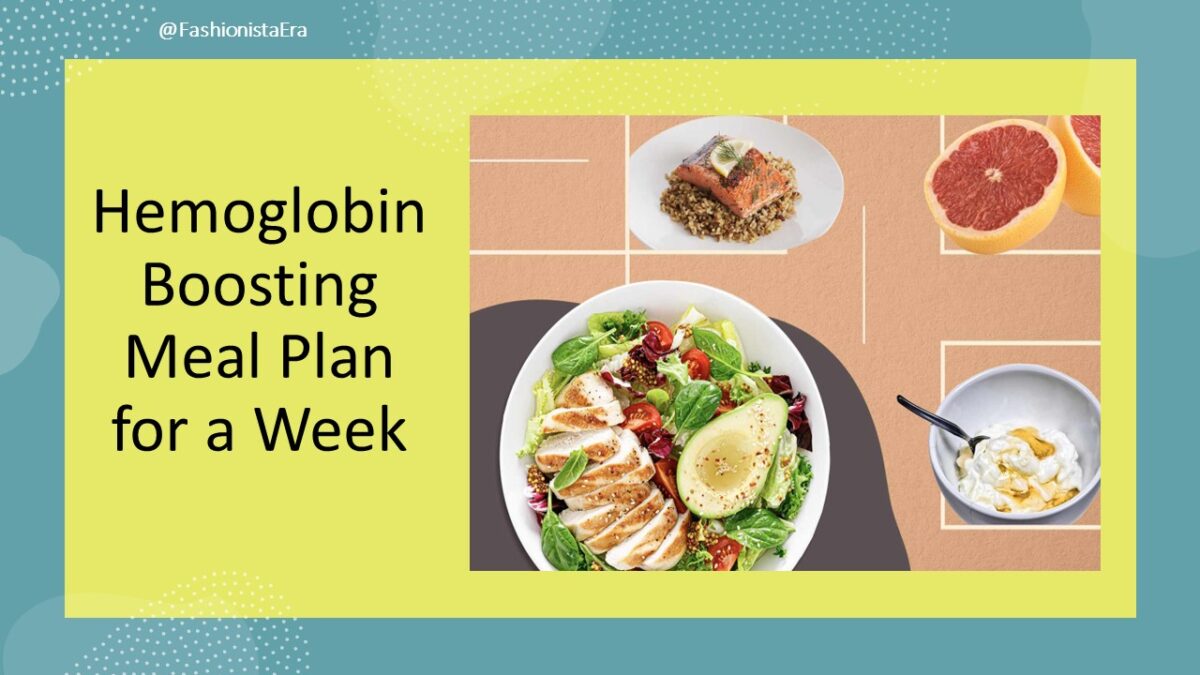As an assistant, I have learned that maintaining a healthy lifestyle is crucial for overall well-being. One of the most important aspects of a healthy body is the level of hemoglobin. Hemoglobin is a protein found in red blood cells that carries oxygen throughout the body. In this article, I will provide information on how to eat foods to increase hemoglobin levels naturally by incorporating iron-rich foods into your diet.
Understanding Hemoglobin and Its Role in the Body
Hemoglobin is a crucial component of the body that helps transport oxygen from the lungs to the tissues and organs. It is a protein that binds to oxygen and releases it in the tissues that need it. Hemoglobin is essential for maintaining healthy cells, tissues, and organs, and it is responsible for the red color in blood.
The level of hemoglobin in the body is measured by a blood test called a complete blood count (CBC). A healthy adult male should have a hemoglobin level of 13.5-17.5 grams per deciliter (g/dL), while a healthy adult female should have a hemoglobin level of 12.0-15.5 g/dL.
Importance of Maintaining Healthy Hemoglobin Levels

Maintaining healthy hemoglobin levels is essential for overall health and well-being. Low hemoglobin levels can lead to anemia, a condition in which the body does not have enough red blood cells to carry oxygen throughout the body. Anemia can cause fatigue, weakness, shortness of breath, and other health complications.
On the other hand, high hemoglobin levels can lead to polycythemia, a condition in which the body produces too many red blood cells. This can lead to an increased risk of blood clots, heart attack, and stroke.
Factors that Affect Hemoglobin Levels
Several factors can affect hemoglobin levels, including genetics, age, gender, and lifestyle habits. Iron deficiency is one of the most common causes of low hemoglobin levels, as iron is a crucial component of hemoglobin. Other causes of low hemoglobin levels include vitamin deficiencies, chronic diseases, and certain medications.
Factors that can increase hemoglobin levels include living at high altitudes, smoking, dehydration, and certain medical conditions, such as polycythemia vera.
Foods To Increase Hemoglobin Naturally
One of the best ways of Foods to increase hemoglobin levels naturally is to incorporate iron-rich foods into your diet. Iron is an essential component of hemoglobin, and a diet rich in iron can help increase hemoglobin levels. Here are some iron-rich foods to include in your diet:
Iron-rich Foods to Add in your Diet

Here are some common foods that are rich in iron:
- Red meat: Beef and lamb are both excellent sources of heme iron, which is easily absorbed by the body. A 3-ounce serving of cooked beef or lamb contains about 2-3 milligrams of iron.
- Poultry: Chicken and turkey are also good sources of heme iron. A 3-ounce serving of cooked chicken or turkey contains about 1 milligram of iron.
- Seafood: Oysters and clams are the richest sources of iron among all types of seafood, with a 3-ounce serving containing about 5-10 milligrams of iron. Other seafood sources include sardines (1.5 milligrams per 3-ounce serving) and tuna (about 1 milligram per 3-ounce serving).
- Beans and lentils: These are excellent plant-based sources of iron. Kidney beans, chickpeas, and lentils all contain about 2-3 milligrams of iron per half-cup serving.
- Tofu and tempeh: Both of these soy products are good sources of iron. Half a cup of firm tofu contains about 3 milligrams of iron, while half a cup of tempeh contains about 2 milligrams.
- Nuts and seeds: Pumpkin seeds and cashews are particularly high in iron, with a quarter-cup serving containing about 2-3 milligrams of iron.
- Leafy green vegetables: Spinach, kale, and Swiss chard are all good sources of iron. A half-cup serving of cooked spinach contains about 3 milligrams of iron, while a half-cup serving of cooked kale contains about 1 milligram.
- Fortified breakfast cereals and breads: Many breakfast cereals and breads are fortified with iron. Check the label to see how much iron they contain.
- Quinoa: This ancient grain is a good source of iron, with a one-cup serving containing about 3 milligrams of iron.
- Dried fruit: Raisins, apricots, and prunes are all good sources of iron. A quarter-cup serving of raisins contains about 1 milligram of iron, while a half-cup serving of dried apricots contains about 1.5 milligrams.
It’s worth noting that the iron in animal products (such as red meat and poultry) is more easily absorbed by the body than the iron in plant-based foods (such as beans and leafy greens). However, consuming foods high in vitamin C (such as citrus fruits and bell peppers) can enhance the absorption of iron from plant-based sources.
Iron-rich Vegetarian Foods for Boosting Hemoglobin
Legumes
Legumes are an excellent source of iron, protein, and fiber. They are also low in fat and calories, making them an ideal food for weight management. Legumes that are high in iron include lentils, kidney beans, chickpeas, and black beans.
Starches and Grains
Starches and grains are another excellent source of iron. Whole-grain bread, brown rice, oatmeal, and quinoa are all high in iron. Adding these foods to your diet can help increase your iron intake and boost hemoglobin levels.
Fruits
Fruits are an excellent source of vitamins, minerals, and antioxidants. Some fruits, such as raisins and prunes, are also high in iron. Incorporating these iron-rich fruits into your diet can help increase your iron intake and boost hemoglobin levels.
Vegetables
Vegetables are an essential part of a healthy diet, and some are also high in iron. Spinach, kale, broccoli, and asparagus are all high in iron and can help increase hemoglobin levels.
Herbs
Herbs such as parsley, thyme, and cilantro are also high in iron. Adding these herbs to your meals and salads can help increase your iron intake and boost hemoglobin levels.
Other Options
Other iron-rich vegetarian foods include tofu, tempeh, and fortified breakfast cereals. Incorporating these foods into your diet can help increase your iron intake and boost hemoglobin levels naturally.
Non-vegetarian Foods for Raising Hemoglobin Levels
Meat
Meat is a good source of iron, and red meat, in particular, is high in heme iron, which is easily absorbed by the body. Incorporating lean meat into your diet can help increase your iron intake and boost hemoglobin levels.
Seafood
Seafood is another excellent source of iron. Oysters, clams, and sardines are all high in iron and can help increase hemoglobin levels. Fish, such as salmon and tuna, are also high in iron and omega-3 fatty acids, which are essential for heart health.
Other Foods and Supplements That Help Increase Hemoglobin
In addition to iron-rich foods, there are other foods and supplements that can help increase hemoglobin levels. Vitamin C is essential for iron absorption, so incorporating foods high in vitamin C, such as citrus fruits and bell peppers, can help increase hemoglobin levels.
Supplements such as iron, vitamin B12, and folic acid can also help increase hemoglobin levels. However, it is essential to consult a healthcare professional before taking any supplements.
Lifestyle Changes to Boost Hemoglobin Levels

In addition to incorporating iron-rich foods into your diet, there are other lifestyle changes you can make to boost hemoglobin levels. Regular exercise can help increase hemoglobin levels by stimulating the production of red blood cells. It is also essential to stay hydrated, as dehydration can lead to low hemoglobin levels.
Getting enough sleep is also crucial for maintaining healthy hemoglobin levels. Sleep is when the body repairs and regenerates, including the production of red blood cells.
Foods to Avoid for Maintaining Healthy Hemoglobin Levels
There are also certain foods to avoid for maintaining healthy hemoglobin levels. Foods high in fat and sugar can interfere with the absorption of iron and other essential nutrients. Alcohol and caffeine can also interfere with iron absorption and should be consumed in moderation.
Hemoglobin-Boosting Meal Plan for a Week

Here is an example of a hemoglobin-boosting meal plan for a week:
Monday
Breakfast: Oatmeal with raisins and almond milk
Snack: Apple with almond butter
Lunch: Lentil soup with whole-grain bread
Snack: Carrots and hummus
Dinner: Grilled salmon with roasted asparagus and quinoa
Tuesday
Breakfast: Greek yogurt with berries and granola
Snack: Trail mix with dried fruit and nuts
Lunch: Tofu stir-fry with brown rice
Snack: Celery with peanut butter
Dinner: Chicken breast with spinach and sweet potato
Wednesday
Breakfast: Whole-grain toast with avocado and tomato
Snack: Banana with almond butter
Lunch: Chickpea salad with mixed greens and balsamic vinaigrette
Snack: Orange slices
Dinner: Beef stir-fry with broccoli and brown rice
Thursday
Breakfast: Smoothie with spinach, banana, and almond milk
Snack: Trail mix with dried fruit and nuts
Lunch: Lentil and vegetable soup with whole-grain bread
Snack: Carrots and hummus
Dinner: Grilled shrimp with roasted vegetables and quinoa
Friday
Breakfast: Scrambled eggs with spinach and whole-grain toast
Snack: Apple slices with almond butter
Lunch: Tuna salad with mixed greens and balsamic vinaigrette
Snack: Celery with peanut butter
Dinner: Pork tenderloin with roasted sweet potatoes and green beans
Saturday
Breakfast: Whole-grain waffles with berries and whipped cream
Snack: Trail mix with dried fruit and nuts
Lunch: Grilled chicken salad with mixed greens and balsamic vinaigrette
Snack: Orange slices
Dinner: Grilled steak with roasted vegetables and quinoa
Sunday
Breakfast: Smoothie with kale, banana, and almond milk
Snack: Apple slices with almond butter
Lunch: Lentil and vegetable soup with whole-grain bread
Snack: Carrots and hummus
Dinner: Grilled salmon with roasted vegetables and brown rice
Conclusion
Maintaining healthy hemoglobin levels is essential for overall health and well-being. Incorporating iron-rich foods into your diet, along with other lifestyle changes, and foods to increase hemoglobin levels naturally. By following a foods to boost hemoglobin meal plan and avoiding certain foods, you can ensure that your body has the nutrients it needs to function properly. Remember to consult with a healthcare professional before making any significant changes to your diet or lifestyle.

